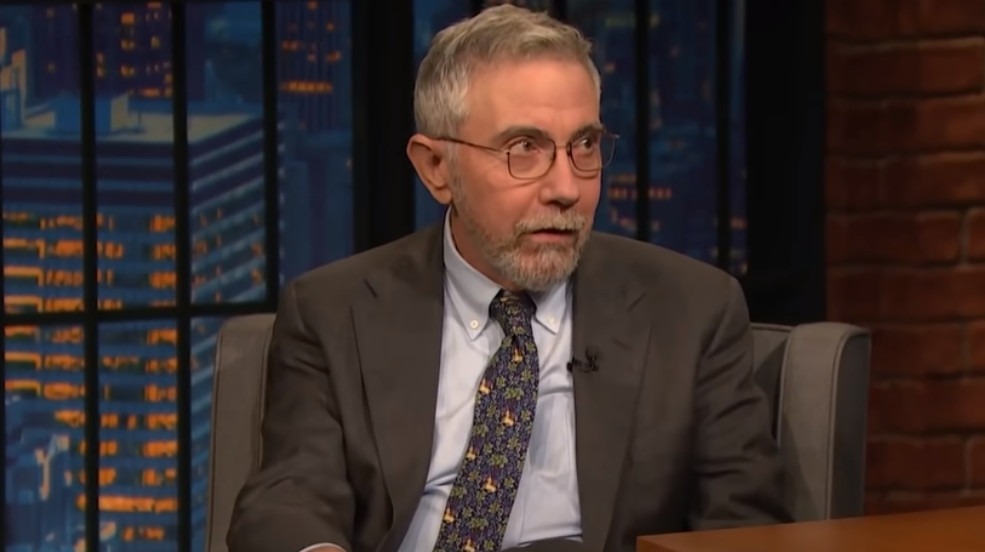
Date: 2024-07-17 Page is: DBtxt003.php txt00025560
ECONOMICS
CLASSICAL / AUSTRIAN / KEYNSIAN
Economics Explained: The Most Important Economic Schools of Thought
CLASSICAL / AUSTRIAN / KEYNSIAN
Economics Explained: The Most Important Economic Schools of Thought
Original article: https://www.youtube.com/watch?v=o6UXRZ2XwgU
Peter Burgess COMMENTARY
I studied engineering and then I studied economics at Cambridge. Most of my contempories chose a field of specialization in engineering after their undergraduate engineering studies ... going for more depth in their chosen field. I chose a different path and moved from engineering to economics ... choosing more educational breadth over educational depth. I have never regretted this choice.
Cambridge economics was very stimulating. Classical economics at Cambridge was much about Marshall, but when I was a student the intellectual giant and driver of the economics department was John Maynard Keynes and other academics who had worked with Keynes for years and especially Joan Robinson who was central to my own economics training. I did not realise until quite recently that Joan Robinsom wrote some of the key papers that informed Keynes's thinking in the early 1930s when she was still in her 20s and well before Keynes' 'General Theory' was published.
As I recall, when I was a student, one of the issues we talked a lot about was employment and unemployment. There was a view that in the then (... c1960)) modern world all economic needs could probably be produced with the labor force working for less than 30 hours a week. This was considered a 'good thing' since it would open up many hours of time for everyone to do something of social value for themselves or others. I am reminded of this because some 60+ years later with improvements in 'productivity' never imagined during my student days and most workers in this time are workding longer to support what appears to be a lower standard of living and quality of life.
What has gone wrong?
When I was a student, the economics specialty of 'econoometrics' was just emerging ... and while I am more mathematical and numbers oriented than most, I am uncomfortable with the broad methodology and especially the results!
When Joan Robinson was at the top of her career she was invited to become the President of the Econometrics Institute in the UK. She declined and is said to have observed in her letter informing of her decision that she was not a suitable person for the job as she had little understanding of the methodology (my rather clumsy version and memory of her what seh said). I can relate to her decision. My situation is somewhat different as I come at 'numbers' from an engineering perspective and where numbers had better be right of the structure will fall down or the machine won't work! From this perspective most of the 'numbers' that get into the news from the field of economics are a form of 'generally acceptable misinformation'.
I am appalled ... disgusted ... that one of the most widely discussed economic datapoint is GDP Growth. Why am I so annoyed? I was an economics student at Cambridge in the UK more than 60 years ago and the subject of GDP being a bad metric of economic performance was an active issue, and yet, many decades later this metric is still the most widely used metric of economic performance.
I have concluded that this is not happening by mere happenchance, but is driven by something more substantive ... and my conclusion is that there are powerful influencers that have chosen to stick with this fatally flawed metric. I surmise that these people are getting benefit from the functioning of the modern economic system as it is, no matter that the majority of people are facing a degrading of their quality of life and many other measures of socio-enviro-economic performance are trending in the wrong direction.
Peter Burgess
Economics Explained
Sep 10, 2020
2.32M subscribers ... 1,101,971 views ... 29K likes
#Economics #Austrian #Keynesian
Sign-up for Acorns! 👉 https://acorns.com/ee?s2=ECON3 (upon registration, Acorns will deposit $5 in your account to help you get started with investing!)
An economy is a collection of production and consumption processes that are all working towards solving the central economic problem.
The problem is that we only have access to a finite amount of resources, but the potential for human consumption of goods and services is pretty much limitless.
This is the foundation of economics, every study, every paper, every theory, economic policy, or experiment is ultimately an attempt to find a solution to a problem, that by its very nature, has no solution.
Economics is considered a social science, and although some other scientists from more “rigorous” fields don’t always welcome it into their little club, it still follows the same processes to explore the world around us.
And, as with science, or anything that is extremely complex for that matter, there are disagreements between practitioners at all levels of academia and throughout the entire history of the subject.
The economic schools of thought are very broad ways that economists are clumped into basic groups.
Now the first thing to know about all of these schools of thought is that they all agree with one another on most issues.
In the same way that two physicists will obviously agree with one another that and object at rest will remain at rest, but might disagree about string theory. Two economists will obviously agree that there are opportunity costs for every unit of production, but they might disagree on the long term implications of a consumption tax.
The economy impacts our financial situations, our governments, retirements, environments, crime rates, and basically anything else that is going to make news headlines.
As with anything that people are invested in they form opinions around it. And those opinions are held by everybody from Nobel laureate career economists to that crazy guy advocating for a seed-based economy.
If this contention wasn’t enough then there is one other issue that makes these schools of thought difficult to deal with, and that is that there are no strong borders between them.
There are plenty of economists that agree with some of the principles of one school of thought and then disagree wildly on some other areas. Which is actually a good thing. But more on that later.
For now, to try and make sense of this wild world we are going to look at three major schools, Classical, Austrian, and Keynesian.
To show the differences between these schools we are going to look at the way they suggest solving the central economic problem in key areas.
What they suggest the role of government is.
What do they think the role of the individual is.
What they propose doing in an economic crisis.
And finally what is the key to delivering a wealthier happier economy?
If you’d like to dive deeper in to the topics discussed in this video, we recommend checking out these fantastic books:
- 📚 Wealth of Nations by Adam Smith - https://amzn.to/3ihm0U8
- 📚 The General Theory of Employment, Interest and Money by John Maynard Keynes - https://amzn.to/3ihms4M
- (Note: as an Amazon Associate, we earn from qualifying purchases).
Enjoyed the video? Comment below! 💬
- ⭑ Subscribe to Economics Explained 👉 https://bit.ly/sub2ee
- ⭑ Enjoyed? Hit the like button! 👍
- Q&A Streams on EEII (2nd channel) →
- / @economicsisepic
- ✉️ Business Enquiries → hello@economicsexplained.com
- Twitter 🐦 → https://twitter.com/EconomicsEx
- Facebook → https://www.facebook.com/EconomicsEx
- Instagram → https://www.instagram.com/economicsex...
Sign-up now and Acorns will invest $5 into your portfolio to help you get started with investing, saving, and earning with every purchase!
👉 https://acorns.com/economics-explained
ECONOMICS EXPLAINED IS MADE POSSIBLE BY OUR PATREON COMMUNITY 👊🙏
Support EE by becoming a Patron today! 👉 https://www.patreon.com/EconomicsExpl...
The video you’re watching right now would not exist without the monthly support provided by our generous Patrons:
Morgon Goranson, Andy Potanin, Wicked Pilates, Tadeáš Ursíny, Logan, Angus Clydesdale, Michael G Harding, Hamad AL-Thani, Conrad Reuter, Tom Szuszai, Ryan Katz, Jack Doe, Igor Bazarny, Ronnie Henriksen, Irsal Mashhor, LT Marshall, Zara Armani, Bharath Chandra Sudheer, Dalton Flanagan, Andrew Harrison, Hispanidad, Michael Tan, Michael A. Dunn, Alex Gogan, Mariana Velasque, Bejomi, Sugga Daddy, Matthew Collinge, Kamar, Kekomod, Edward Flores, Brent Bohlken, Bobby Trusardi, Bryan Alvarez, EmptyMachine, Snuggle Boo Boo ThD, Christmas

Joan Robinson







Paul Krugman



Adam Smith


Carl Menger and Friedrich von Wieser

Friedrich Hayek
